Mahsa Amini, State Power and Selective Global Outrage
Within the span of a month from August 22nd to September 22nd five tragic deaths of women took place in four different parts of the world.
In Mississippi, USA, Mable Arrington was shot by the local Biloxi police in her home in front of her children on August 22nd. The police had been called over because of a possible dispute between neighbours.

In Tehran, Iran, the Gasht-e Irshad or Guidance/ Morality police detained a young woman called Mahsa Amini on September 13th for not wearing her hijab properly. As subsequently released videos show, she collapsed, went into a coma and died at a detention centre.
In India’s largest state of Uttar Pradesh, two Dalit sisters, Manisha and Pooja (names changed), were raped and hanged by a group of boys which included five Muslims and one Hindu on September 15th. Two of the Muslim boys were in a relationship with the girls.

According to the police the girls voluntarily left the village with the boys but subsequently were raped in sugarcane fields. When the sisters insisted that the boys marry them after the rape, the latter refused and instead, along with their friends, killed the sisters.
In Baghdad, Iraq Zainab al Essam Al-Khazali was working on her father’s farm when a bullet in the head killed her on the 20th of September. The shot was fired as part of the military exercises of the US Army stationed near Baghdad International Airport.
Hardly anyone outside Mississippi would have heard of 42 year old Arrington’s killing and only a few local newspapers carried the news and obituaries. 22 year old Mahsa Amini’s death has received global coverage. The rape and lynching of the two teenage sisters received widespread coverage in India and some international coverage but soon became ‘slow news.’ Al-Khazali’s death, just a week after Amini’s death, received hardly any coverage except for on social media and in Iranian and local Iraqi press.
Which women’s bodies matter?

All four incidents clearly show how women’s bodes bear the brunt of familial, social, institutional and state endorsed violence and patriarchy. Each woman had other aspects to their identities that complicate linear and binary understandings. Arrington was a black American. Mahsa Amini was an ethnic Kurd. Manisha and Pooja were from India’s most disenfranchised and persecuted caste. Zainab al-Khazali was a teenage Shia woman and was grand-daughter of Majid al-Khazali who had died fighting for the pro-Iranian paramilitary organisation, Asaib Ahl Al-Haq. The receptions of these four incidents speak volumes about the way in which the wider context, geo-political imperatives, state narratives and indeed our individual prejudices eclipse any question of principle.
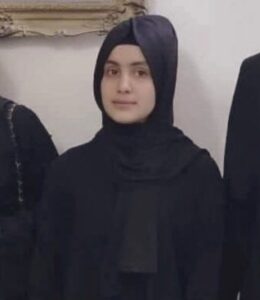
For obvious reasons, the news of each of the incidents, save the death of Amini, would have been heard by a limited number of people depending on their access to news, their location, their own identities, their ideological underpinnings or of course simply whether they cared to follow the news.
Of course, the news of these three killings was not amplified by international media. However, the death of Amini has eclipsed all other coverage internationally. Indeed her tragic death is now being used as a cloak by Iran’s geo-strategic rivals in order to call for regime change.
@Israel, a twitter handle run by the Israeli ministry of foreign affairs is regularly tweeting about Amini. Their Persian language page also tweeted in solidarity as did embassies in Latin America.
The blurring of the line between supporting Iranian women and explicitly promoting regime change only harms the protesters and the protests since ‘foreign intervention’ is often invoked by countries across the world to crack down on dissent.
Iran in particular has a long history of foreign interference, especially by America and Israel. The latter has a history of carrying our assassinations within Iran. Both governments and media from various countries, including America, France, the UK and others, have made Amini’s death into a cause célebrè to highlight state-sponsored atrocities in Iran. This is precisely the basis on which the Iranian government is dismissing the protests that actually reflect genuine dissatisfaction and anger. The protests might have been catalysed by Amini’s death but are now also about the wider socio-economic difficulties that common Iranians face. But why does the international community single out Iran?
Why does the shooting of a black American woman or the regular atrocities that Dalits suffer in India not invoke anywhere near a similar kind of reaction? The George Floyd killing in 2020 had catalysed huge protests but most commentary and the demands were about fixing a broken system, not replacing governments. Just in the last year 1048 people have been killed by police in America and the rate at which black Americans are killed by police is twice as high as that of white people. To this day local activists in Biloxi, Mississippi have been unsuccessful in getting the police to release their body-cam footage, which in any case privileges the view from the perspective of the policeperson wearing the camera. In George Floyd’s case the horrific bodycam footage was only released 10 months after his murder.
In India, the Hathras Rape case in 2021 of a Dalit girl who was raped and killed received widespread coverage and high-lighted how collusion between politicians and the police even prevented a dignified funeral for the girl. The police locked her family at their house, cremated her in the dead of night and arrested journalists who tried to reach the village. Section 144 of the Criminal Procedure Code was invoked by the state to prevent people from gathering to protest in Delhi.
Anti-Dalit violence is so normalised in India that outrage is replaced by apathy even though 130,000 crimes against Dalits were recorded between 2018-20 according to the Indian government’s data. Just recently a nine year old Dalit boy was beaten to death by his teacher for drinking water from a pot meant for upper-caste teachers. Subsequently, more Dalit girls have been raped and killed in a number of Indian states.
Are black bodies and Dalit bodies less important than Muslim women’s bodies? Just because race and caste are often localised and do not impinge on geo-politics, does that mean the world largely remains silent? And indeed, if only Muslim women’s bodies do need saving, then where’s the outrage about women in the Arab world where even privileged Princesses and ordinary citizens flee from the male guardianship system. Where’s the call for regime change in Afghanistan against the very Taleban, who’s ascent to power was met by shock and inaction by the West?
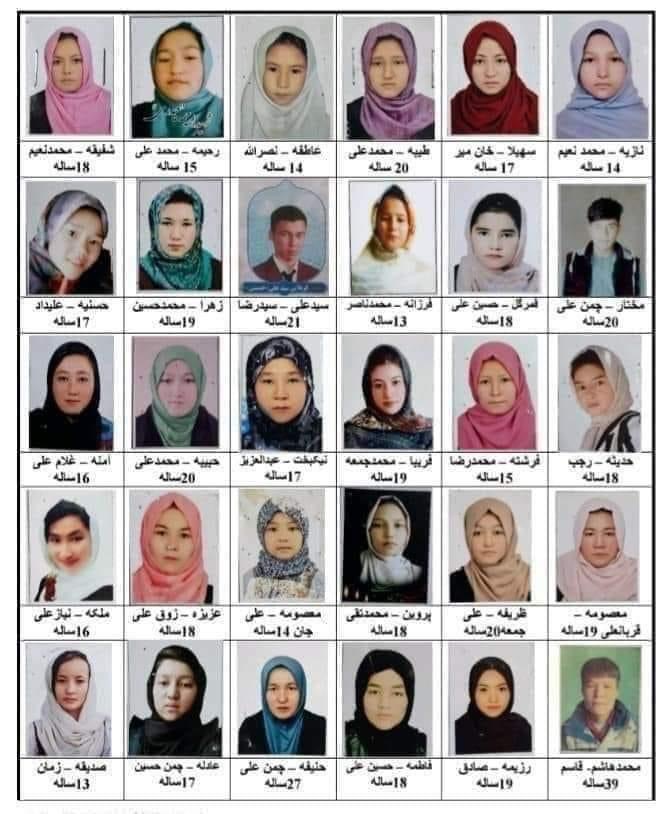
The Taleban prevent girls from studying. In Iran women form more than 65% of those in higher education. Just last year a 21 year old Afghan girl, Nazanin was shot by the Taleban for wearing clothes that were ‘too tight.’ On Sep. 30th 2022 more than 70 teenagers, many of them young hijabi women, were killed for their faith and ethnicity by a suicide bomber in Kabul. Yet the twitter handles of various foreign ministries are just churning out the same old tokenistic condolence and condemnation tweets. @Israel and @IsraelMFA, as of 0800 hrs Indian time had not condemned the bombing. Why no outrage for the Hazara Shias? Apart from the odd token statement about respecting gender equality or titillating tabloid news, there is no outrage against these countries whose leaders are allied to the West.
Global Outrage: geo-politics or principles?
The liberal principle of the right to choose what to wear is being invoked but it seems that wider geo-strategic imperatives are as much a reason for Amini’s death being made into a global event. The US and Iran have been renegotiating the nuclear deal that Trump tore up. Israel has made it clear that it wants no deal. Additionally, the Russia-Ukraine war has massively affected energy prices in Europe and there is deep worry about the future. For decades, one of the reasons that many Western countries have wanted a pliable proxy in Iran is because of its rich natural gas and oil reserves.
Part of the reasons for invading Iraq in 2003 was precisely to ensure access to its oil although everyone remembers how Mssrs. Bush and Blair invoked values and principles in order to legitimise their invasion of a country whose dictator that had originally propped up against Iran. It is not without irony that Al-Khazali was killed near the symbol of the US occupation of Iraq, Abu Ghraib prison.
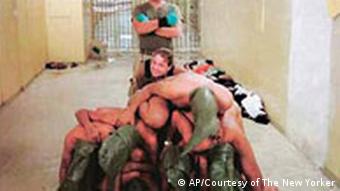
Today, we speak of the brutality of the Iranian authorities and the notorious Evin prison but a general amnesia has set in about the brutal torture chambers and rendition black-sites, not to mention the killing of civilians by US soldiers. Zainab al-Khazali’s death will be dismissed as collateral damage, that odious term coined by the American state to conceal the true fact of the matter: bloody murder. When nation-states invoke principles, they are almost always a cloak to legitimise deeply instrumental and selfish motives.
Just as the hijab is invoked to demonstrate Iran’s ‘tyranny’ while the real reasons are also geo-political, the protests in Iran have, no doubt, been catalysed by Amini’s death but are also a valve for deep unrest and anger about the dismal state of the Iranian economy and the lack of other social and political freedoms. American led sanctions are no small part of the reason that the price of basic commodities have sky-rocketed. The cost of living has sky-rocketed in Iran and there is a great deal of domestic discontent about the government.
The modern state is the real problem
In Iran, members of the political elite are talking about how the death of Amini is partly their fault since they are merely enforcing principles on a population rather than truly trying explain their value to people. Parliamentarian, Masoud Pezeshki spoke about how politicians and the ulama need to introspect but these conversations are not being written about outside Iran. Many orthodox and devout Muslims are equally outraged by the killing of Mahsa Amini in Iran but the fault lines that are emerging around larger issues of geo-politics are going to polarise the country more starkly. Videos have started to circulate of Iranians (it is not clear where they are based) tearing and burning pages of the Quran and abusing the Prophet. A group of Iranians in London attacked a Pakistani Shia religious procession. They shouted besharaf, honourless, whereas the procession was to commemorate the 40th day of the martyrdom of Imam Hussain and had nothing to do with the Amini protests. Meanwhile, France’s hijab ban and the debate in India about whether school-girls should be allowed to wear the hijab are hardly spoken about on the same scale or in the same manner as the right of women not to wear the hijab. Just last year a Muslim woman was barred from standing in an election in France because she wore the hijab. She belonged to the same party as Emmanuel Macron.
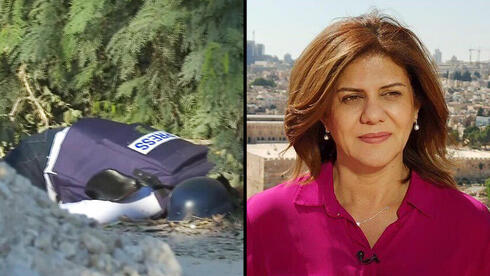
Much like leaders of America and India in the aftermath of George Floyd’s murder or the killing of Dalit girls, Iranian President Ibrahim Raeesi too has promised an investigation into the causes of her death. We all know that such statements are often disingenuous and do not often lead to any kind of deeper change but it is clear that the problem lies within the structures of state power. Just recently Israel said that it will not be launching a criminal investigation into the murder of Shireen Abu Akleh, a Palestinian American journalist who was shot in the neck by an Israeli soldier. It is evident that the violence perpetrated by states on their citizens and the policing of their bodies, whether in France, Iran, Israel, America, Afghanistan or India, is not restricted to countries that are run on religious principles.
As Hoda Katebi, an Iranian American writer, has written “this is not about Islam or enforcing ‘morality’ but about enforcing state power. … A huge number of Iranian civil society groups, including teacher collectives, worker unions, reformist political groups and religious clerics, have come out with statements demanding the abolition of the morality police.” Indeed, the state enforcement of the hijab, with the threat of punishment, runs counterintuitive to the fundamentals principles of Islam. No one is policing whether people recite the shahada or testament of faith, or indeed whether they pray, fast, give charity or go on pilgrimage. These matters, much like the choice of wearing the hijab or not, are between a believer and their Maker. What people forget is that apart from being a theocracy, Iran is also a nation-state and therefore behaves like other nation states which encourage conformity and homogeneity through control of the bodies, and indeed minds, of citizens.
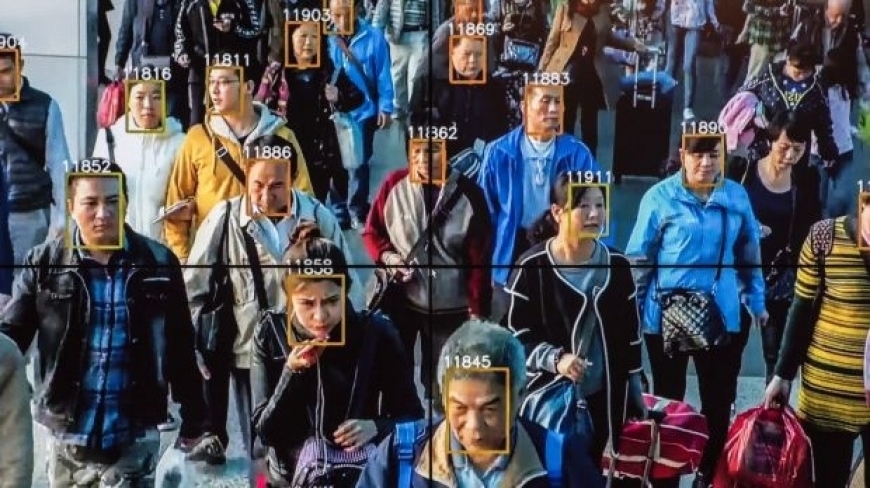
For example, like China’s frightening surveillance programme which was used to detect Uyghur Muslims, Iran too has recently announced that it will use facial recognition technology to monitor citizens. Following many liberal and secular countries, Iran too has phased in use of biometric technology in the form of ID cards. The problem that confronts everyone in the world today is the surveillance state.
In all this, the victims and the tragedies faced by their families are ignored or subsumed under larger struggles. The latter would be a good outcome but in the case of Amini, it is clear that global outrage is also a pretext for veiling pernicious geo-political imperatives. These geo-political motives will ultimately harm the protestors in Iran. Naturally, we will all identify with certain struggles and stories more than others but this should not be defined by governments, media and social media but by our own choices and understandings. It is especially easy to manufacture outrage and consent in today’s day and age. The harsh fact is that Amini’s tragic death can be profited from, in the very literal sense of the word, whereas the deaths of Mable, Manisha, Pooja and Zainab and countless other women are just more statistics.
